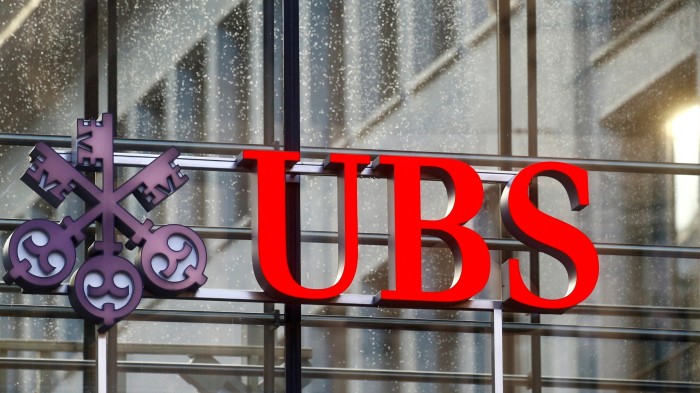Unlock the Editor’s Digest for free
Roula Khalaf, Editor of the FT, selects her favourite stories in this weekly newsletter.
UBS’s fourth-quarter profits blew past expectations as it became the latest global bank to benefit from the trading frenzy following Donald Trump’s US presidential election victory.
A strong performance at its investment bank powered UBS to net profits of $770mn in the final three months of last year, surpassing the $483mn forecast by analysts. Revenues climbed 7 per cent to $11.6bn compared with the same period a year earlier.
The Swiss bank said that it had benefited from strong demand from institutional and private clients during the quarter, boosted by an increase in risk appetite following Trump’s return to the White House.
Revenues at UBS’s global markets division jumped 44 per cent in the fourth quarter compared with the same period in 2023, boosted by higher trading activity in equities and foreign exchange.
The results echo those from Wall Street rivals last month, and come as French lender BNP Paribas on Tuesday said that a rebound at its investment bank helped drive profits up more than 15 per cent.
They also mark a fourth consecutive quarter of profit at the Swiss lender as it continues to integrate its former rival Credit Suisse, which it acquired in 2023 in a deal orchestrated by Swiss regulators.
On the back of the better than expected results, UBS said that it would buy back $1bn of its shares in the first half of 2025 and a further $2bn in the second half.
Pre-tax profits at UBS’s investment bank came in significantly ahead of expectations at $486mn, but the bank’s wealth management unit disappointed with smaller inflows than analysts expected.
The wealth management business — especially in the crowded but fast-growing US market — is regarded as an important part of its strategy to capitalise on its acquisition of Credit Suisse.
“Throughout 2024, we maintained robust momentum as we captured growth in global wealth and asset management and gained market share in the investment bank in the areas where we have made strategic investments,” said UBS chief executive Sergio Ermotti.
UBS added that “constructive market conditions” continued into the first quarter of 2025, but warned that investor sentiment could be hit by a “clouded macroeconomic outlook outside the US [and] increased uncertainties around global trade”.
UBS is in the middle of a three-year integration of Credit Suisse, which involves migrating clients and integrating IT systems, a lengthy process that the bank expects will be completed in 2026.
The migration of the majority of Swiss accounts and all portfolios in its asset management business would be completed by the end of the year, UBS added.
Last month, Ermotti signalled that he would continue to cut jobs as the integration progressed. UBS’s headcount swelled from below 75,000 to about 120,000 after it agreed to rescue its cross-town rival nearly two years ago.
The bank had about 109,000 full-time staff at the end of last year, down from 113,000 a year earlier.
During the final quarter of 2023, UBS fell to a $279mn loss as it contended with restructuring costs related to the integration.
Read the full article here




